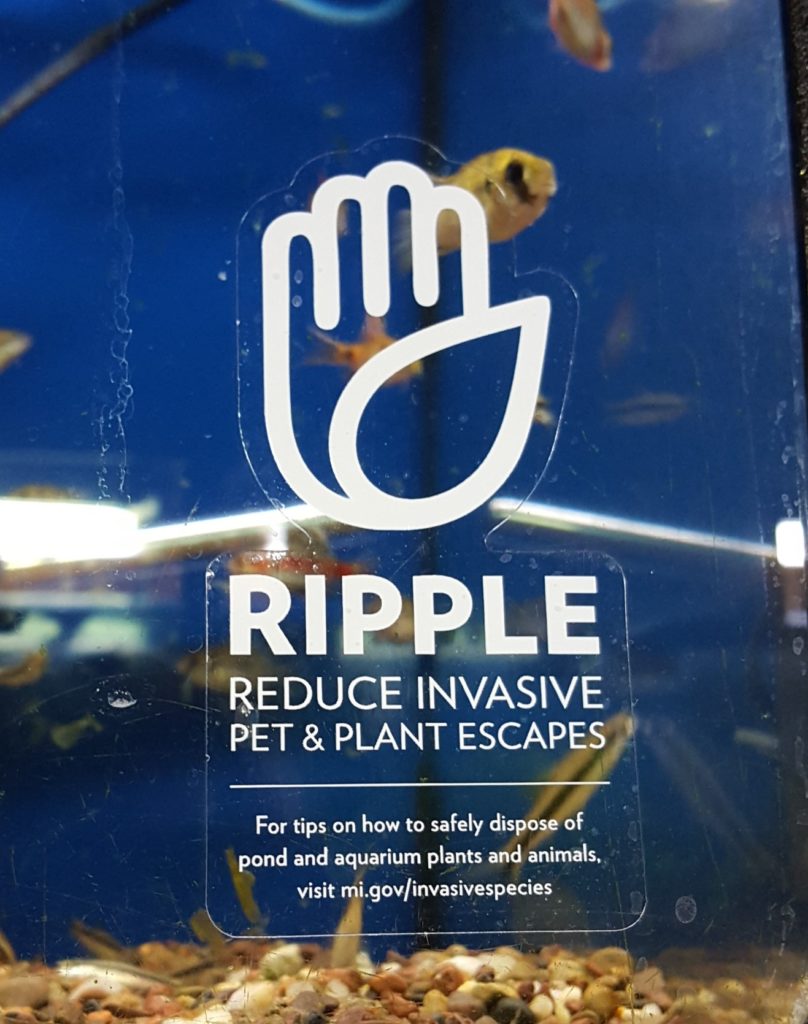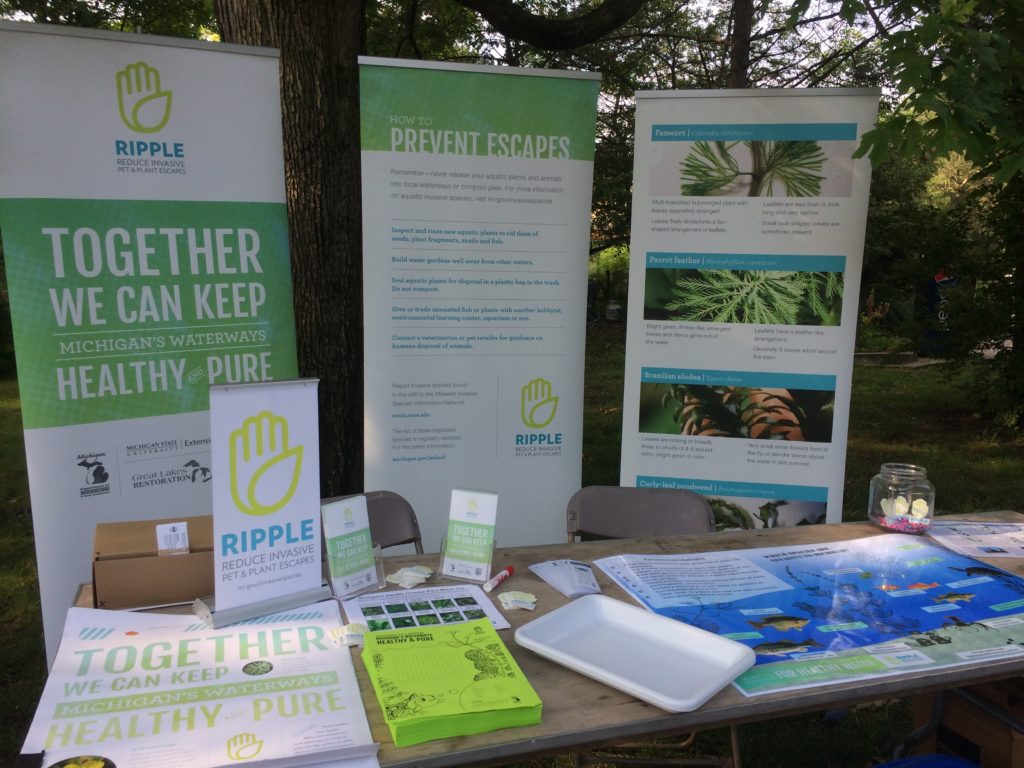Guest Blog by: Paige Filice and Tara Eavy, Department of Fisheries and Wildlife, Michigan State University
For those of us who like to experience nature at home, keeping an aquarium, water garden, or pond may be the perfect solution. But what you may not know is that your tiny slice of nature can have a potentially catastrophic effect on Michigan’s ecosystems if introduced into the wild.

As compared to boating activity, the release of unwanted plants and animals from aquariums, water gardens, and ponds is a lesser known but important pathway for the introduction of aquatic invasive species. Plants and animals popular in trade are typically hardy and can become highly invasive. Some species sold are tropical and cannot tolerate Michigan’s climate, however even these species can introduce pathogens and parasites that may severely impact our native species.
In response to this problem, we created the aquatic invasive species education campaign: RIPPLE (Reduce Invasive Pet and PLant Escapes). As the coordinators of RIPPLE at Michigan State University, we aim to reduce the introduction of pet and water garden species through outreach to retailers, environmental groups, schools and hobbyists through presentations, training, and the distribution of educational materials on proper handling and disposal.
Our message is simple: never release the unwanted contents of any aquarium, terrarium, or water garden into the wild. Instead, consider giving or trading them with another hobbyist, environmental learning center, aquarium, or zoo. Contact a veterinarian or pet retailer for guidance on humane disposal of animals if giving or trading them is not an option. When disposing of any aquatic plants, seal them in a plastic bag before throwing them in the trash. To prevent unexpected plants, snails and fish from becoming established in aquariums or water gardens, rinse any new plants to rid them of seeds and other potential hitchhikers. When building ponds or water gardens, do so away from other water bodies to prevent escapes during flooding events.

These are just a few ways you can personally help keep potential invaders out of our waterways. Another is by helping us connect with local retailers and conservation organizations that would be interested in displaying our free educational materials. Interested parties can order RIPPLE materials free of charge from our online order form. We also do presentations, attend events with an educational booth, and write articles for publications. You can keep up with RIPPLE on Facebook to see posts on identifying invasives and preventing their introduction.

RIPPLE is a partnership of Michigan State University Extension, the Michigan Department of Agriculture and Rural Development, and dozens of Michigan businesses and organizations. If you would like to learn more about RIPPLE and how to connect with the campaign, please contact Paige Filice at filicepa@msu.edu or visit our website.





